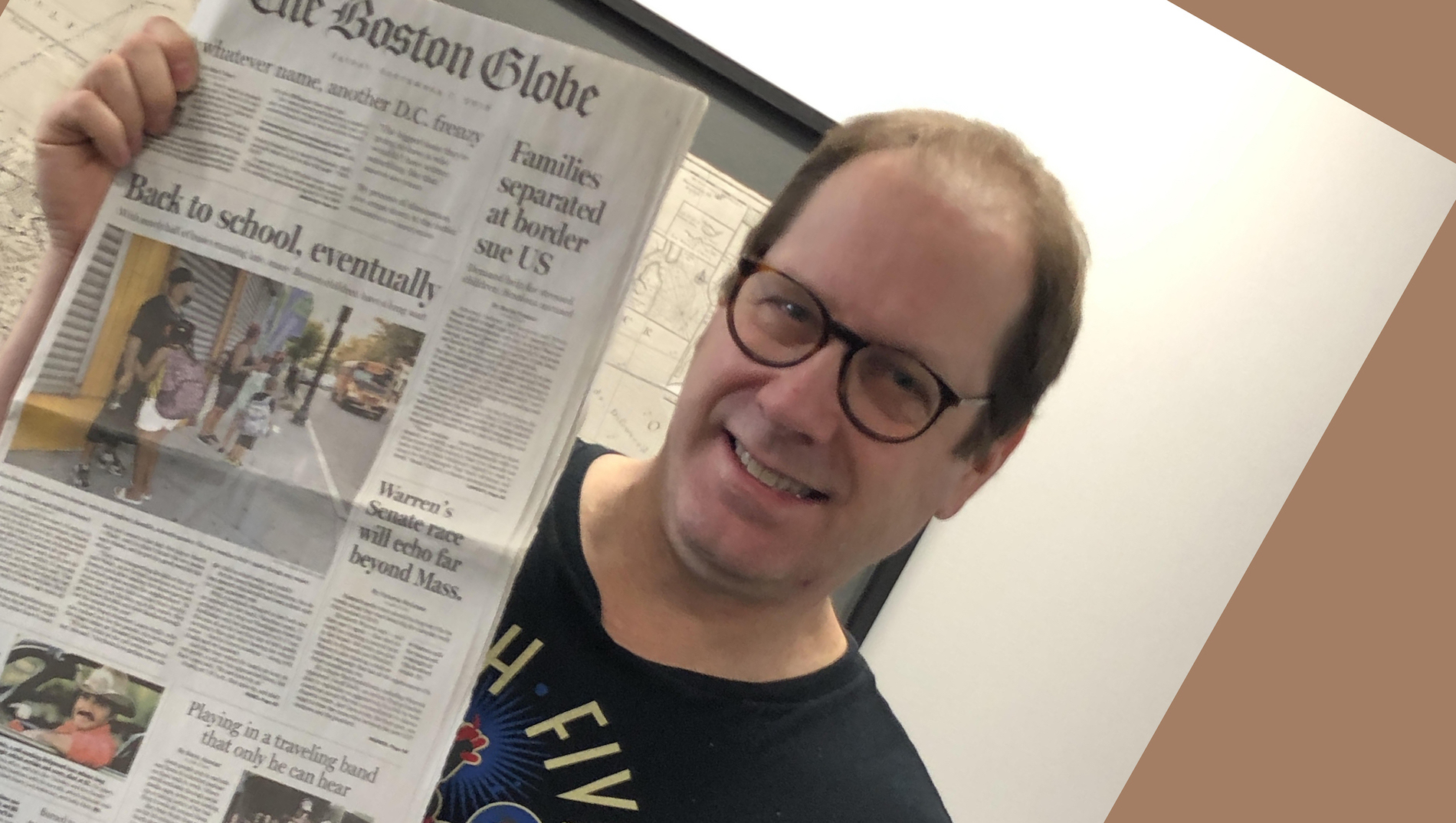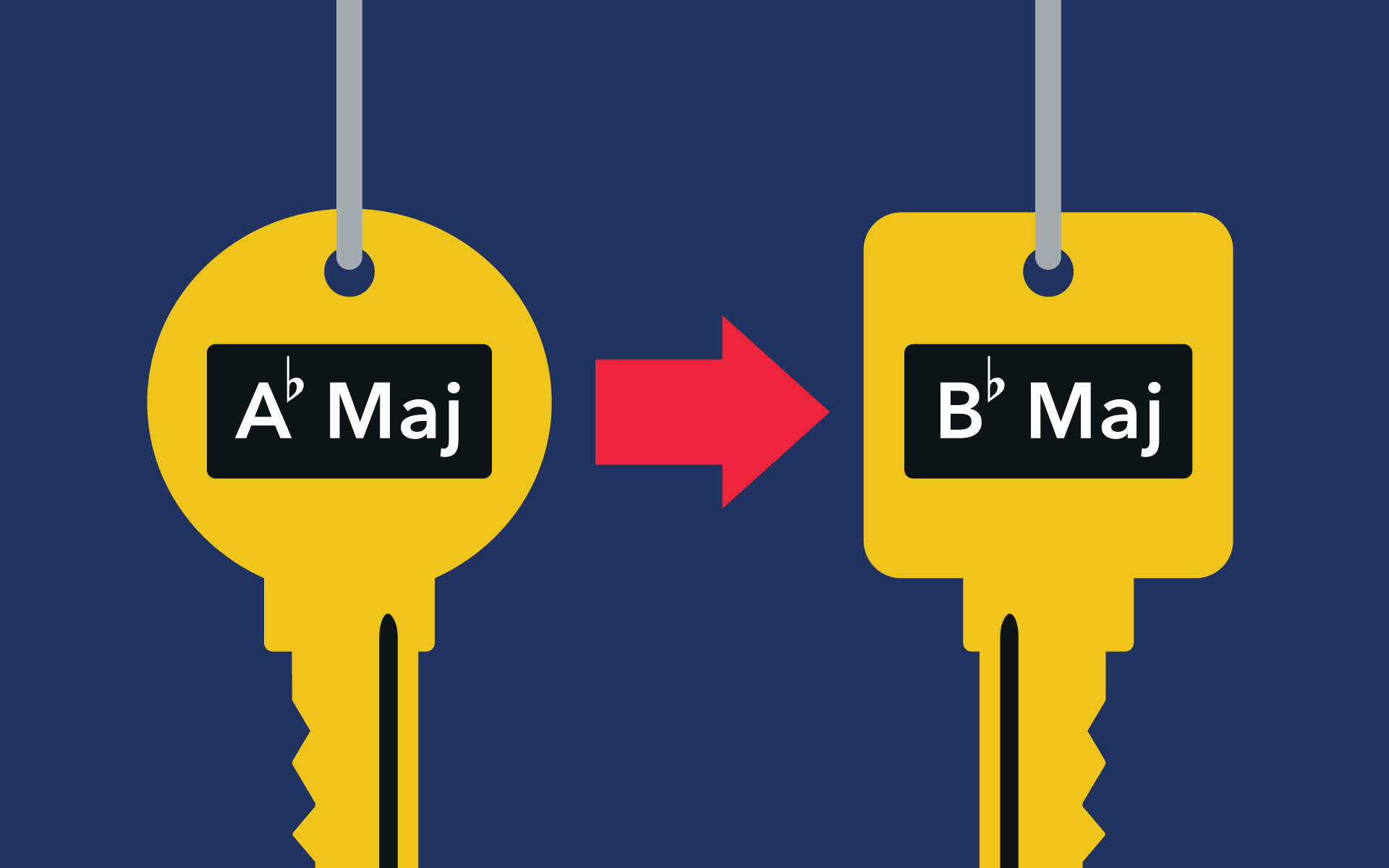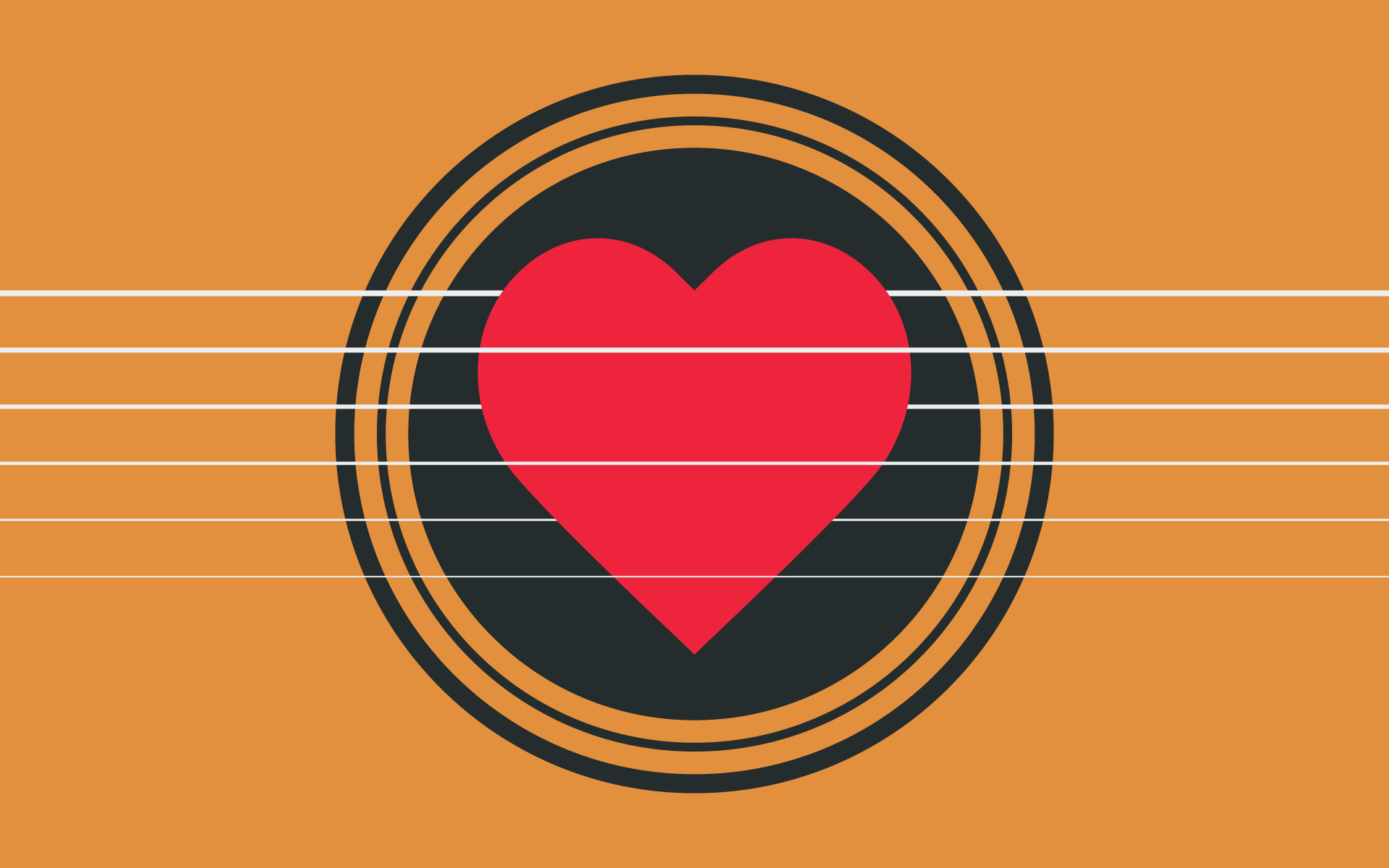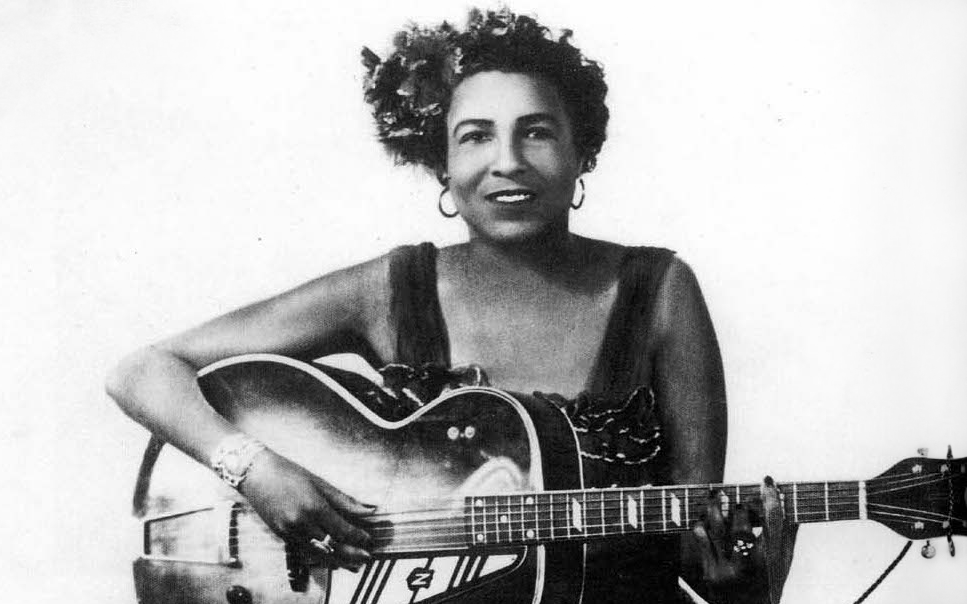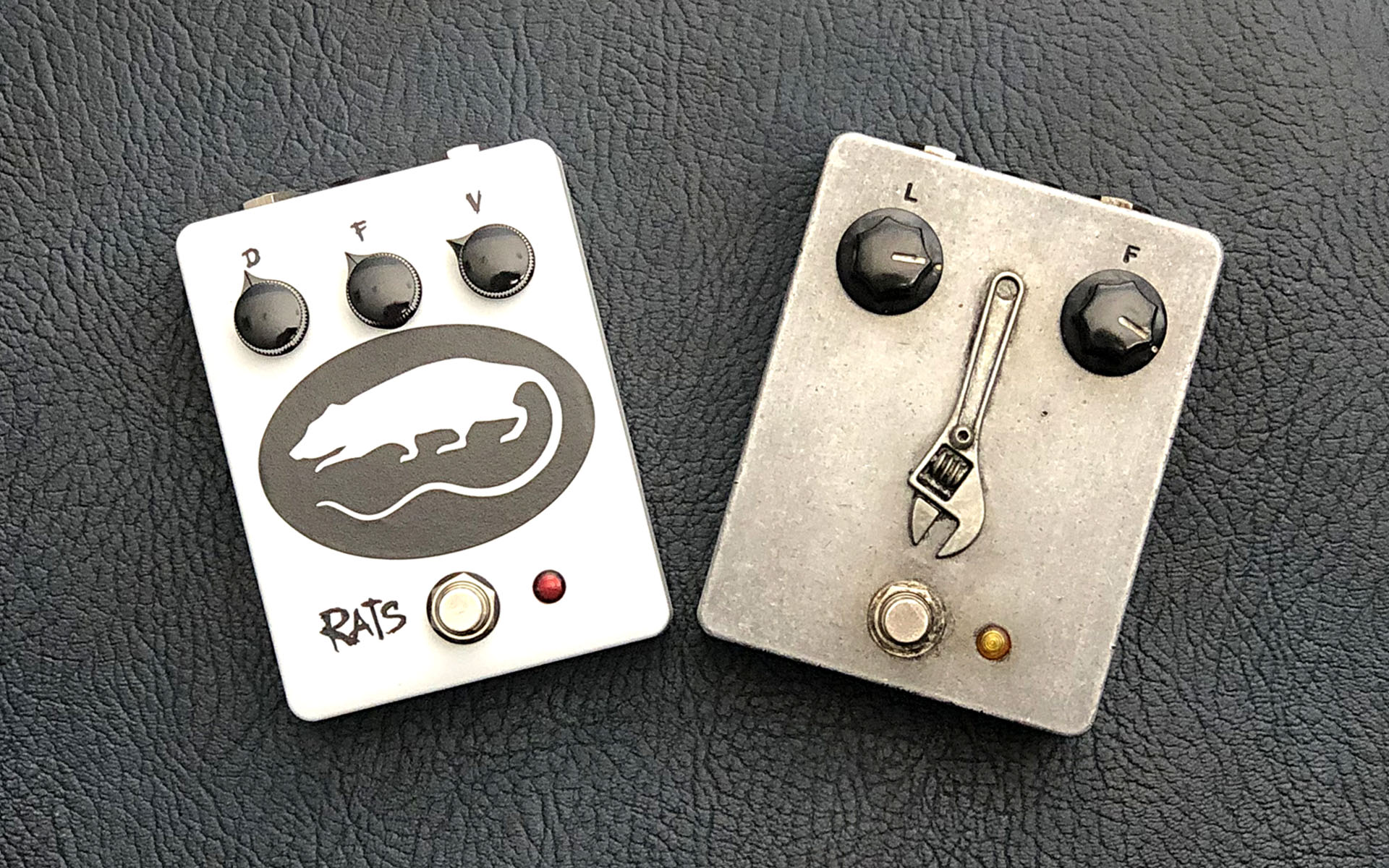In a city rich in music and rich in personality, what does it take to stand out? For Peter Wolfe, it only takes a guitar, a headphone amp, and the willingness to capitalize on his 20-minute-each-way daily walk between Boston’s North Station and his office in the city’s Financial District. A feature in the Boston Globe in September of 2018 raised his profile; now he’s being recognized on the street and local politicians are asking to take selfies with him. Members of the Berklee Online staff noticed a quote in the Globe article where Peter discussed his lack of formal training, and offered him a complimentary course as a brand ambassador.
Having learned the guitar by sound and feel, Peter chose to enroll in Berklee Online’s Guitar Scales 101, which just wrapped up. He says his experience was an opportunity to look at the instrument from a more intellectual perspective. “I knew things about music in general,” he says, “but never really connected them to guitar playing or each other. There was a lot of stuff kind of swirling around in my head that I didn’t know how to connect or actually use in any practical way. One of the great things about this course was giving me the ability to do that.”
A data analysis guru by day, Peter is also a lifelong musician. He was a drummer in his high school days, he plays some piano, and he’s been walking and rocking on a guitar since college in the 1980s. The habit of bringing a guitar along on his daily strolls is indicative of his unique ability to maximize his time and direct his energy, a valuable skill for a thin-stretched college student or a senior partner with towering professional responsibilities and a busy family life. It’s about more than beating boredom on a monotonous commute, Peter explains. “It’s learning to just relax and tune into something else, think about things differently.”
“A few people have contacted me to ask me about my gear,” Peter says. There was a time when he played an acoustic guitar on his journeys, but he has long since gone electric, favoring his blue Fender Strat through a pocket-sized Line 6 box. He often plays along with tunes patched in from his phone; a prime mix of bluesy rock from the 1960s tops his playlist.

Peter’s had the Strat for about two decades, and he takes good care of it. “I usually don’t take it out when there’s any moisture at all,” he says. “Yeah, it’s got some marks of wear over the years, but it’s fine.”
He’s also happy to report no injuries to himself over the years of navigating other pedestrians, cars, and the usual sidewalk obstacles (Peter does mention one run-in with traffic, but he’s talking the British band Traffic, whose guitar tour de force “Dear Mr. Fantasy” is one of the songs he’s been re-working since taking the course).
In the opening lessons of Guitar Scales 101, learning the fingerings and positions of the major scale was of immediate benefit to Peter’s playing. “They got me comfortable with how to start playing scales,” he says, “putting your fingers where they’re supposed to be and not having to stare at them all the time…it became really easy for me to figure out where different keys were on the guitar.”
Connecting these concepts with his prior knowledge of the guitar helped Peter to play on a deeper level. The process was exciting for such an analytical mind, “intellectually recognizing something and then physically and intellectually being able to do something about it.”
Peter worked the assignments and concepts from his course into his daily routine, practicing scales and mindfully jamming along with tunes via his headphone amp as he walked between the train station and his office on the sunny days of the fall term. “I think it was a good mix of theory and then practical stuff every week,” he says.
He quickly noticed that he was playing and hearing in a more complete way. “Getting into the modes, that one was really eye-opening,” he explains. “Once I started to learn the modes and how often they appeared, it became clear that a lot of this music that I was already playing was in pretty defined modes. Once I learned to recognize how, say, Mixolydian looks in terms of chord progressions, I found that everywhere.”
Now, winter has hit Boston and pushed Peter’s playing indoors for the time being. He has finished Guitar Scales 101, but his work is far from over. “I could easily stop now and focus on the next thing,” he says, “but there’s so much stuff that I left that I’m going to go back and master. It’s going to take me another six months to finish it all. In some cases I am, but most of it I’m nowhere near there. It was a lot of information packed into 12 weeks.”
STUDY GUITAR WITH BERKLEE ONLINE





